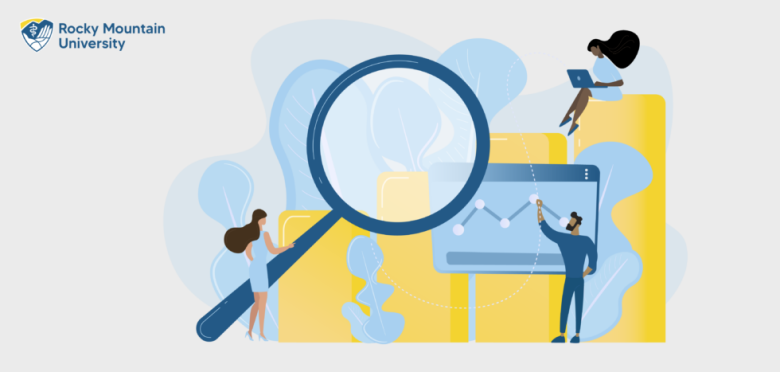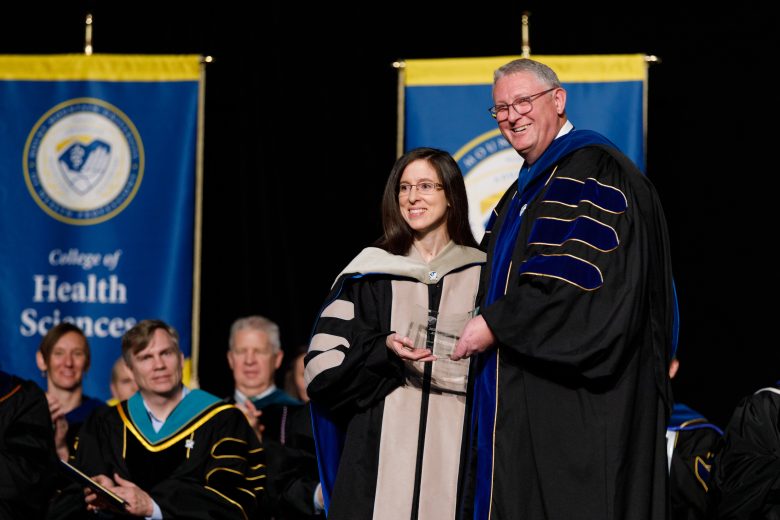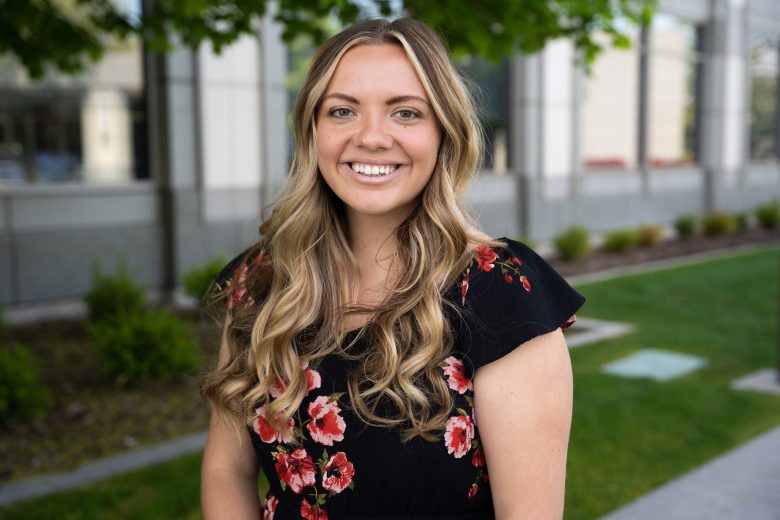Chayla Harris Gaines, PhD, is an experienced wellness and communications specialist who works in corporate worksite health and wellness. A native of Atlanta, Georgia, Gaines currently works at Bravo Wellness as an Account Executive. She received her PhD in Health Sciences with a concentration in Health Promotion and Wellness from Rocky Mountain University of Health Professions (RMUoHP). Michelle Webb, EdD, OTD, OTR/L, CAPS, is the Director of Academic Assessment and a faculty member in the PhD in Health Sciences program at RMUoHP. A graduate of the RMUoHP Doctor of Occupational Therapy program, Webb is a licensed occupational therapist and certified aging-in-place specialist with over 25 years of healthcare experience. Gaines and Webb share their experiences, insights, and hopes related to systemic racism, health disparities, and social injustice in healthcare.
Gaines explains that in the African American community, there are many barriers to adequate healthcare; for example, poverty and lack of trust in healthcare generally. In addition, there are many stories and myths that are passed on to each generation which have influenced African Americans to distrust healthcare providers who don’t look like them.
For example, according to the Center for Disease Control, in 1932, the Public Health Service began a study, called the “Tuskegee Study of Untreated Syphilis in the Negro Male,” to learn more about syphilis in hopes of justifying treatment programs for blacks. After 40 years of studying, an ad hoc advisory panel reviewed the study and found no evidence that researchers had informed participants of the study or its real purpose, but rather, the men had been misled and were never given adequate treatment for their disease. “They thought they were doing something good for healthcare, but then found out they were being misled,” said Gaines.
Gaines explained that stories like that are shared among African Americans, especially in the South, which contributes to the severe lack of trust in healthcare providers.
“I feel that as an African American woman, there has been a lot of growth that has happened in healthcare, but a lot of that growth has not often carried forward the cultural competency and cultural sensitivities as it relates to African Americans,” said Gaines.
Webb asks, “How do we teach healthcare professionals to see their patients without prejudice?”
Gaines recommends an open-minded approach to healthcare. “The approach to treating people has to be open minded and without bias. It takes time to rewire that mindset. My initial thought is to have healthy conversations with other practitioners that may be of African American descent or Latin American descent.
She also says that starting as simple as bedside manor can make a big difference —- seeing patients not as “an individual with a disease, but seeing them as multi-faceted; could “open the door“ between provider and patient to build that level of trust.”
Webb also provides suggestions for healthcare organizations as a whole. “One of the things we try to support are standardized protocols. Race shouldn’t have anything to do with how you treat a patient.”…Implicit bias must be addressed as this could adversely affect communication and treatment.
She adds, “There needs to be a constant attention and focus on cultural competence; it shouldn’t be one time, but should be ongoing throughout the course of our careers. We’re doing a better job but we’re not where we need to be…If you want to combat the disparity, you need to get into the community because that’s how you’re going to build trust.”
Gaines explains that the Blacks Live Matter movement is working to re-educate people and bring awareness to issues that have afflicted African Americans for many years and have gone unaddressed. “All lives in fact do matter,” said Gaines. “But the things that have plagued African Americans generationally for so many years, from social injustice and inequalities must be addressed—-it is important that we have these conversations so we can effect change generationally.”
She adds, “Black Lives Matter is making us have a conversation and a healthy dialogue so we can treat each other, as Dr, Martin Luther King said, “brotherly, sisterly.” We’re in this together, It’s not about black versus white. It’s about humanity.”
Webb continues, “It is now time for this country to come together. It is time for us now to have these conversations, openly and honestly. It is time for us now to look at systematic change in many areas of our country, from healthcare, education, criminal justice reform, housing.”
To combat the health disparity among races, Webb said, “ We have to be part of the solution and get out there and educate.”Listen to the entire RMUpload episode here.



